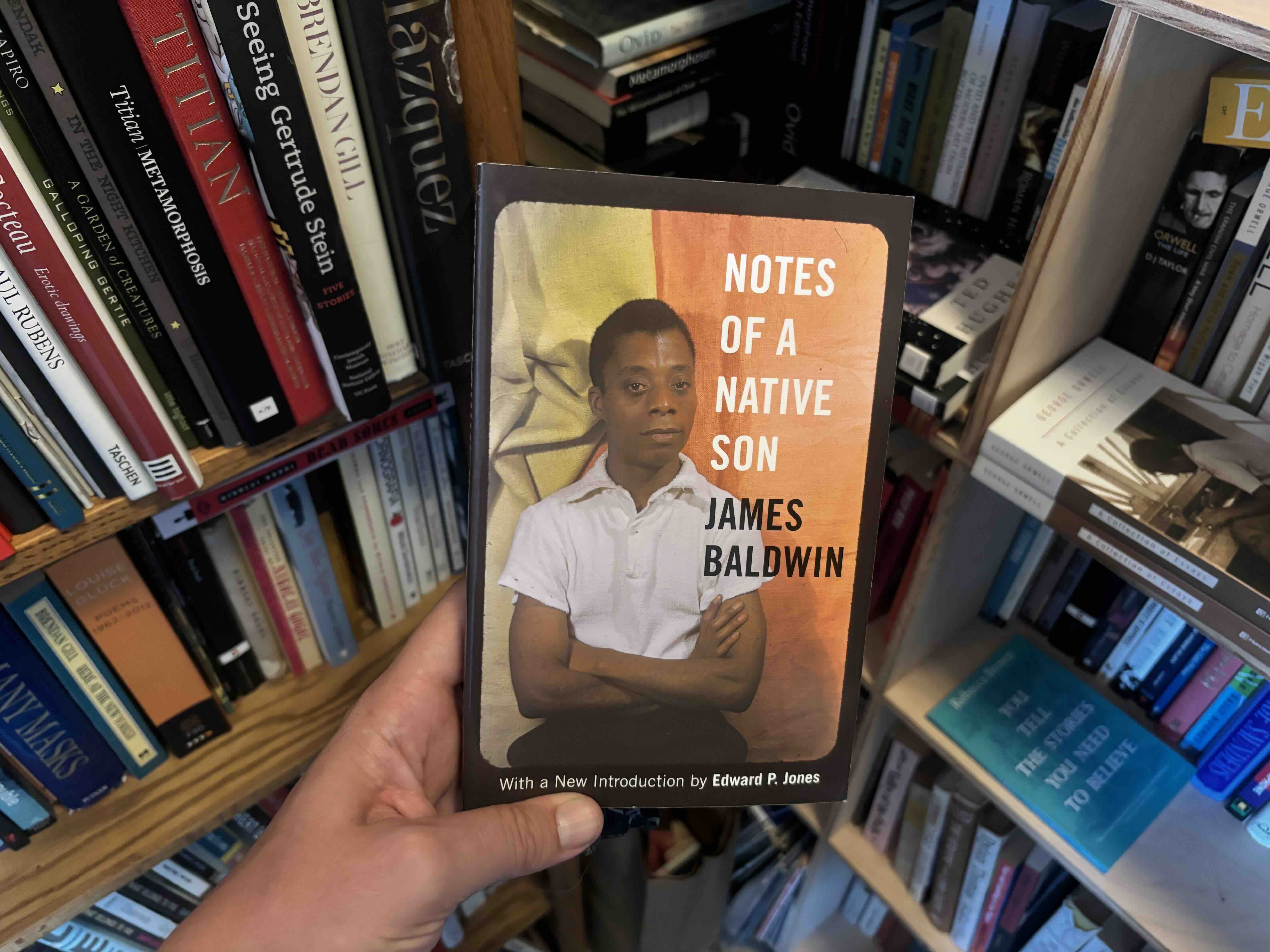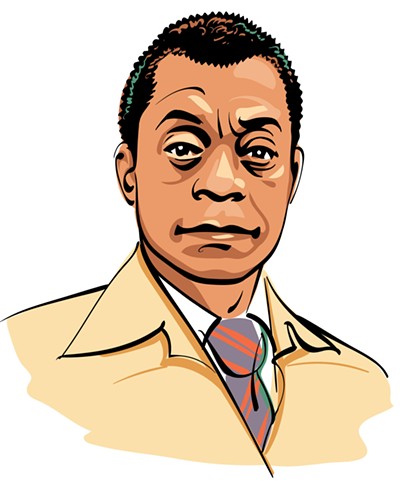
James Baldwin Book Club
We're reading "Notes of a Native Son"
Saturdays, 10 am–11:30 am Pacific, September 20–October 25
James Baldwin just turned thirty when he published the 1955 essay collection Notes of a Native Son, although they would seem to have been written by a wise sage or powerful prophet.
For six weeks, we will examine the ten essays in Baldwin’s classic book, two per week, giving each think piece a thought, as well as a consideration of its place not just in literature, but history and culture.
By turns passionate, iconoclastic, and uncompromising, sometimes argumentative, sometimes loving, sometimes fierce, sometimes lyrical, always sobering, Baldwin’s essays are many things, but they are never dull. From a reconsideration of Harlem twenty years after the Renaissance, to a troubling visit to contemporary Atlanta, from discoveries of black and brown people in postwar Paris to a dissenting reassessment of Harriet Beecher Stowe’s Uncle Tom’s Cabin, Baldwin shows an incredibly wide range of knowledge, thought, and experience.
We’ll spend our first session talking about Baldwin’s life, and his huge influence on the Civil Rights Movement through this book and its companion volume, Nobody Knows My Name, and some thoughts about why the book is just as powerful today as it was when it was published. We’ll also discuss his direct influence on American literature—he is, of course, a great novelist, and one of the best Frizzlit groups discussed the remarkably uncompromising Giovanni’s Room, but his essays are equally accomplished.
Before there was an official term for the genre called Creative Nonfiction (coined by Lee Gutkind in the 1980’s), Baldwin was practicing all of it in the 1940’s and 50’s and giving us perfect examples of memoir, familiar essay, creative journalism, biography, criticism of culture, books, and films, travel writing, attacks, and lectures. All of these subgenres are represented in Notes of a Native Son.
Each week after our introductory session, we will read and discuss two essays. Besides the group discussion, we will provide context, biography, history, and commentary that have accumulated since the book’s first publication. Along the way, we will look at several writers (and excerpts from their works) who were deeply influenced and inspired by Baldwin’s essays, including Teju Cole, Glenn Ligon, Langston Hughes, and Nikki Giovanni, as well as the works cited, including Uncle Tom’s Cabin, Native Son, If He Hollers Let Him Go, and the film “Carmen Jones.
Who is leading this class?
Brian Bouldrey is a writer and teaches writing and literature at Northwestern University in Chicago. He has previously led Frizzlit groups on Laurence Sterne’s novel Tristram Shandy, and short story collections by Anton Chekhov and Flannery O’Connor. Brian is the author of eleven books, most recently, Good in Bed, a collection of essays, and the forthcoming novel The Good Pornographer to be published in March 2026 by University of Wisconsin Press.
Are meetings recorded?
Yes. All meetings are recorded and automatically sent out to all ticketholders — so if you have to miss some (or all) of our live sessions, you won't miss anything.
Recommended edition of Notes of a Native Son
We recommend you get this edition published by Beacon Press, the original publisher and supporter of James Baldwin.
What do I do before our first meeting?
Get your hands on a copy of Notes of a Native Son before our first meeting. Please read the short “Autobiographical Notes” as well as the first essay in the collection, “Everybody’s Protest Novel”—he comes out swingin’!
Thank you for donating
Thank you to everyone who pays extra to make a donation to financial assistance. We see your name on the list, and we do a happy dance of gratitude in your name. Thank you for making this class accessible to folks who would not be able to afford it otherwise.
Art
James Baldwin portrait by Kathryn Rathke

